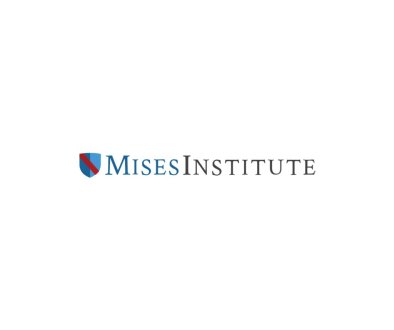The Assassination and Resurrection of Martin Luther King, Jr.
The following article, in a slightly different form, appears in my new book, At the Lost and Found (Clarity Press)
“I don’t believe in death without resurrection. If they kill me, I will rise again in the Salvadorian people…” – Archbishop Oscar Romero, martyred, 24 March 1980
Whether we are aware of it or not, we live by stories. We live by others’ stories while we tell our lives by how we live. Our actions tell our stories. Then, when we die, others tell our stories as they wish.
This is the spiritual thread that links the meanings of our lives. It is the way we pass over to other lives and return to our own. But without truth, we end up in the wrong place, living the wrong stories. So it is crucial to get our facts straight.
And don’t the stories of certain special people inspire us to carry on their legacies because their spirits are far stronger than death? Their courage contagious? Their witness the triumph of life over death? Love over hate?
Don’t they challenge us to imitate them, to kindle in us the fire of their resurrected spirits?
One of the most inspirational stories that has motivated so many people to fight for peace, justice, and human equality is that of Jesus, the Palestinian Jew born in Bethlehem who grew up in Nazareth and was executed as a criminal in Jerusalem by the Roman state. A criminal for peace.
Spring turns our minds to rebirth, to resurrection, but first it compels us to dwell on death, the death of nature that will spring to life, the death and resurrection of Jesus, the deaths of all those slaughtered in Gaza and so many other places, and the deaths of those who have died working for peace and human reconciliation. Martyrs.
April 4th marks the 1968 assassination of Rev. Martin Luther King, Jr., the Christian prophet and martyr, executed by the U.S. government in Memphis, Tennessee. A day that gives rise to doubly deeper thoughts that cross religious boundaries where people of all faiths or none can unite in the spirit of non-violent resistance to the forces of war, poverty, racism, and materialism – violence in all its forms. Everything that stands in the way of what King called “the Beloved Community.”
Speaking of his ally MLK, Jr., Rabbi Abraham Joshua Heschel said, “When I marched with Martin Luther King in Selma, I felt my legs were praying.” That walkway of prayer led from Selma to King’s Riverside Church speech against the U.S. war against Vietnam on April 4, 1967 and straight to his death on the balcony of the Lorraine Motel exactly a year later on April 4, 1968.
That Jesus met violence with non-violent love and voluntarily entered the darkness of death and abandonment is at the heart of the Christian faith. So too his Resurrection. If the Jewish radical Jesus had not been executed by the Roman state occupiers of Palestine, if all hope for his followers had not seemingly been lost, then his Resurrection could not have given birth to hope in his followers to carry on his spirit of love for the poor, the downtrodden, and the outcasts – his resistance to violence.
Like Oscar Romero in El Salvador, gunned down by U.S. trained death squads at the altar while offering Mass and subsequently named a saint by the Roman Catholic Church, Martin Luther King, Jr.’s witness and the truth about his death should be a central meditative focus this week. As Passover and Easter approach, April 4 offers us a way to contemplate what is now demanded of all people who yearn for the end to hatred, violence, and injustice, and the creation of a beloved world community where love and kindness reign.
The spirit of all the prophets and martyrs is about now, not then; about us, not them; it confronts us with the challenge to interrogate ourselves.
Shall we turn away from their witness? What truly animates our souls? Where do we stand? Do we support the state’s power to kill and wage war, to deny people freedom, to discriminate, to oppress the poor?
Do we support, as does the U.S. government, the Israeli Zionist state’s genocide of the Palestinians?
It is always about now; the living truth is now.
To contemplate the lives of the prophets takes us very deep into the darkness where we encounter the murders of Jesus, King, Romero, and all those who have died trying to make peace and justice a reality. But only if we go into the darkest truths will we be able to see the light that leads us to accept the resurrected spirit of their resistance to evil.
For Americans, the darkest truth is that that their national security warfare state kills its peacemakers and celebrates their killers.
Another prophet of our broken world, the Hindu Mohandas Gandhi, soul brother to King, told us: “We dare not think of birth without death on the cross. Living Christ means a Living Cross, without it life is a living death.”[1]
So what do we need to know about MLK, and why does it matter?
The Repressed Truth About MLK, Jr.
Very few Americans are aware of the truth behind the assassination of Dr. Martin Luther King, Jr., the United States’ celebrated civil rights icon. Few books have been written about it, unlike other significant assassinations, especially JFK’s. For more than fifty years there has been a media blackout supported by government disinformation to hide the truth. And few people, in a massive act of self-deception, have chosen to question the official explanation, choosing, rather, to embrace a mythic fabrication intended to sugarcoat the bitter fruit that has resulted from the murder of one man capable of leading a mass movement for transformative change in the United States. Today we are eating the fruit of our denial when we refuse to face the facts of the U.S. government conspiracy to kill King.
After more than a decade as America’s best-known and most respected civil rights leader, by 1968 Reverend Martin Luther King, Jr. had increasingly focused on poverty issues and publicly declared his intense opposition to the U.S. war against Vietnam in a famous speech – “Beyond Vietnam: The Time To Break the Silence” – at New York’s Riverside Church.[2]
MLK speaking at Riverside Church, NYC, 4 April 1967
Having won the Nobel Peace Prize in 1964, he emerged in the mid-1960s as an international figure, whose opinions on human and economic rights and peaceful coexistence were influential world-wide. Shortly before his assassination, he was organizing the Poor People’s Campaign that would involve hundreds of thousands of Americans who would encamp in Washington, D.C to demand the end to economic inequality, racism, and war.
At the same time, Reverend King was hated by an array of racists throughout America, especially in the American South. Among his greatest declared enemies was FBI Director J. Edgar Hoover, who seemed convinced that King’s backers were Communists out to damage America’s interests. In the late 1960s, the FBI’s COINTELPRO program created a network of informants and agent provocateurs to undermine the civil rights and anti-war movements with a special focus on King.[3]
After King’s “I Have a Dream” speech in 1963, William Sullivan, the head of the FBI’s domestic intelligence division, wrote in a post-speech memo:
Personally, I believe in the light of King’s powerful, demagogic speech that he stands head and shoulders over all other Negro leaders put together when it comes to influencing great masses. We must mark him now, if we have not done so before, as the most dangerous Negro of the future in this Nation from the standpoint of communism, the Negro and national security.[4]
The FBI, after extensive eavesdropping on King, subsequently sent him an anonymous letter urging him to kill himself or else his extramarital sex life would be exposed. The FBI’s and its Director J Edgar Hoover’s hatred for King was so great that nothing was too low for them.[5]
This history is common knowledge as reported in the Washington Post, The New York Times, etc.
During the Senate Church Committee hearings in the mid-1970s, a parallel group within the CIA, code-named CHAOS, was uncovered. Despite its charter disallowing it from operating inside the United States, the CIA similarly used illegal means to disrupt the civil rights and anti-war movements.
Because MLK, in his Riverside Church speech, spoke clearly to what he identified there as “the greatest purveyor of violence in the world today – my own government” and continued to relentlessly confront his own government on its criminal war against Vietnam, he was universally condemned by the mass media and the government that later – once he was long and safely dead and no longer a threat – praised him to the heavens. This has continued to the present day of historical amnesia.
Today Martin Luther King’s birthday is celebrated with a national holiday, but his death day disappears down the memory hole. Across the country – in response to the King Holiday and Service Act passed by Congress and signed by President Bill Clinton in 1994 – people are encouraged to make the day one of service (from Latin, servus = slave). Etymological irony aside, such service does not include King’s commitment to protesting a decadent system of racial and economic injustice or non-violently resisting the warfare state that is the United States.
Government sponsored service is cultural neo-liberalism at its finest.
The word service is a loaded word; it has become a smiley face and vogue word over the past thirty-five years. It’s use for MLK Day is clear: individuals are encouraged to volunteer for activities such as tutoring children, painting senior centers, delivering meals to the elderly, etc., activities that are good in themselves but far less good when used to conceal an American prophet’s message. After all, Martin Luther King’s work was not volunteering at the local food pantry with Oprah Winfrey cheering him on.
But service without truth is slavery. It is propaganda aimed at convincing decent people into thinking that they are serving the essence of MLK’s message while they are following a message of misdirection.
Educating people about who killed King, and why, and why it matters today, is the greatest service we can render to his memory.
What exactly is the relationship between King’s saying that “the greatest purveyor of violence in the world today – my own government” and his murder?
Let’s look at the facts.
MLK speaking at Mason Temple, Memphis, 3 Apr 1968
Martin Luther King, Jr. was assassinated on April 4, 1968, at 6:01 PM as he stood on the balcony of the Lorraine Motel in Memphis, Tennessee. He was shot in the lower right side of his face by one rifle bullet that
Article from LewRockwell

LewRockwell.com is a libertarian website that publishes articles, essays, and blog posts advocating for minimal government, free markets, and individual liberty. The site was founded by Lew Rockwell, an American libertarian political commentator, activist, and former congressional staffer. The website often features content that is critical of mainstream politics, state intervention, and foreign policy, among other topics. It is a platform frequently used to disseminate Austrian economics, a school of economic thought that is popular among some libertarians.




